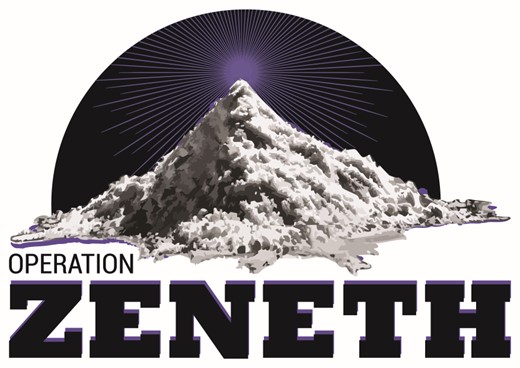
Operation Zeneth: Disrupting Nitazene Trafficking with Seizures of 1.5 Million Potential Fatal Doses
Vienna, 18 March 2025 - A global special operation led by the International Narcotics Control Board (INCB), in collaboration with 95 national law enforcement and regulatory agencies from 72 governments and six international partner organizations, has successfully detected and disrupted global networks trafficking nitazenes, an emerging and highly potent synthetic opioid from the benzimidazole class, seizing the equivalent of 1.5 million lethal doses.
Operation Zeneth, a five-week intelligence-gathering operation in late 2024, focused on identifying key sources and redistribution points involved in nitazene trafficking. Seizures totaling over 42.4 kg were communicated via IONICS, with six different nitazenes detected, some estimated to be up to 30 times more potent than fentanyl. Among the seizures, Brazilian Police detected and dismantled an illicit laboratory involved in nitazene processing.

Photo: Detection and dismantling of a nitazene processing lab by Brazilian Police, seizing significant quantities of nitazenes, chemicals, and plant materials.
Prof. Jallal Toufiq, INCB President, noted that, "Nitazenes are rapidly emerging as the next generation of fentanyl replacements, further fueling the opioid crisis. With some of these ultra-potent synthetic opioids being up to 30 times more potent than fentanyl, they pose extreme risks-not only to users but also to frontline officers affecting seizures. This is why INCB's OPIOIDS Project developed a range of operational tools and training including Opioid Safe Handling and Interdiction Training. Their infiltration into the global supply chains and presence in falsified pharmaceutical preparations make detection and interdiction increasingly challenging."
Operation Zeneth was conducted under the Global Rapid Interdiction of Dangerous Substances (GRIDS) Programme's Project ION and OPIOIDS Project. Support was received from INCB international and regional partners including the International Criminal Police Organization (Interpol), the Oceania Customs Organisation (OCO), the Organization of American States (OAS), the Pacific Transnational Crime Coordination Centre (PTCCC), the Universal Postal Union (UPU), and the World Customs Organisation (WCO). To support government and industry partners, INCB has released a list of non-fentanyl synthetic opioids with no known legitimate uses, several of which have been scheduled under international control, following INCB global operations and alerts.
INCB is the independent, quasi-judicial body charged with promoting and monitoring Government compliance with the three international drug control conventions: the 1961 Single Convention on Narcotic Drugs, the 1971 Convention on Psychotropic Substances, and the 1988 Convention against Illicit Traffic in Narcotic Drugs and Psychotropic Substances. Established by the Single Convention on Narcotic Drugs of 1961, the thirteen members of the Board are elected in a personal capacity by the Economic and Social Council for terms of five years.